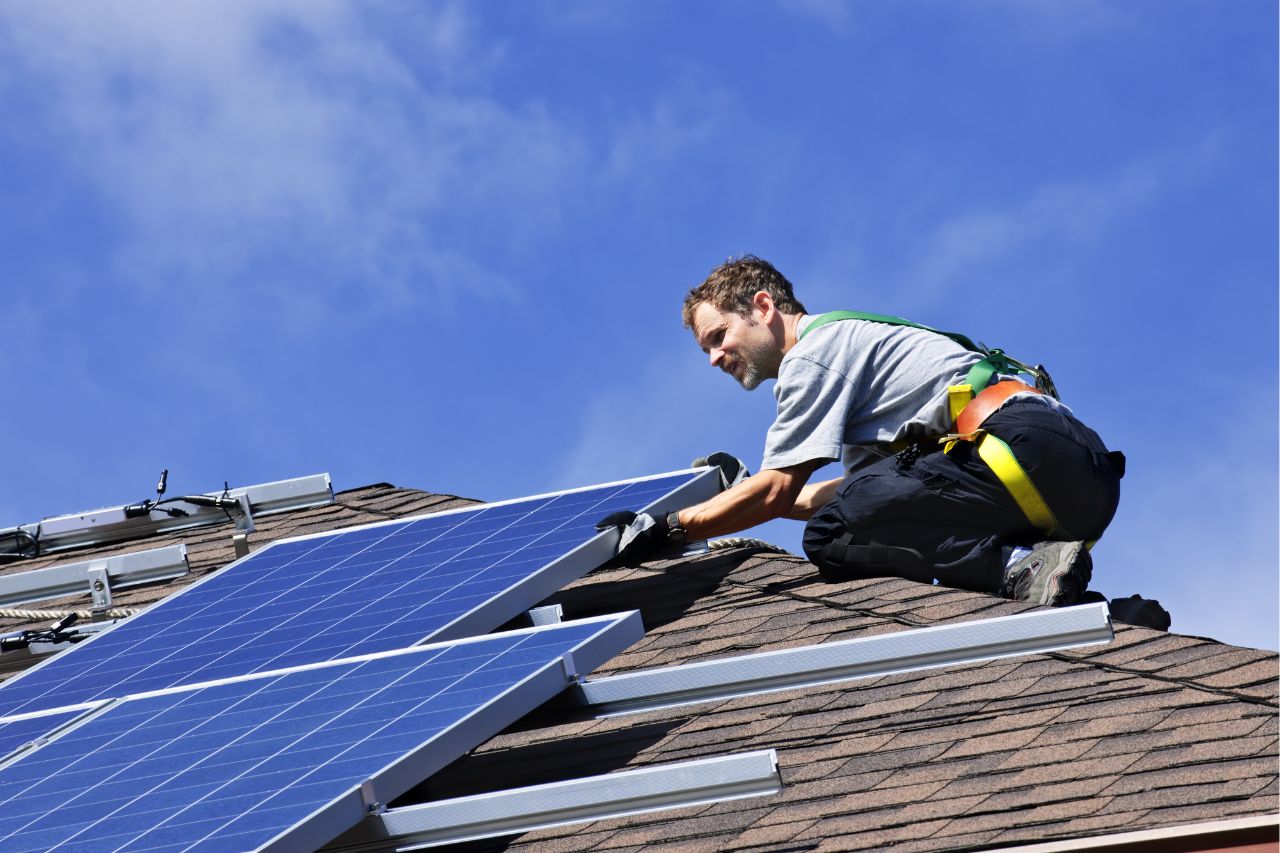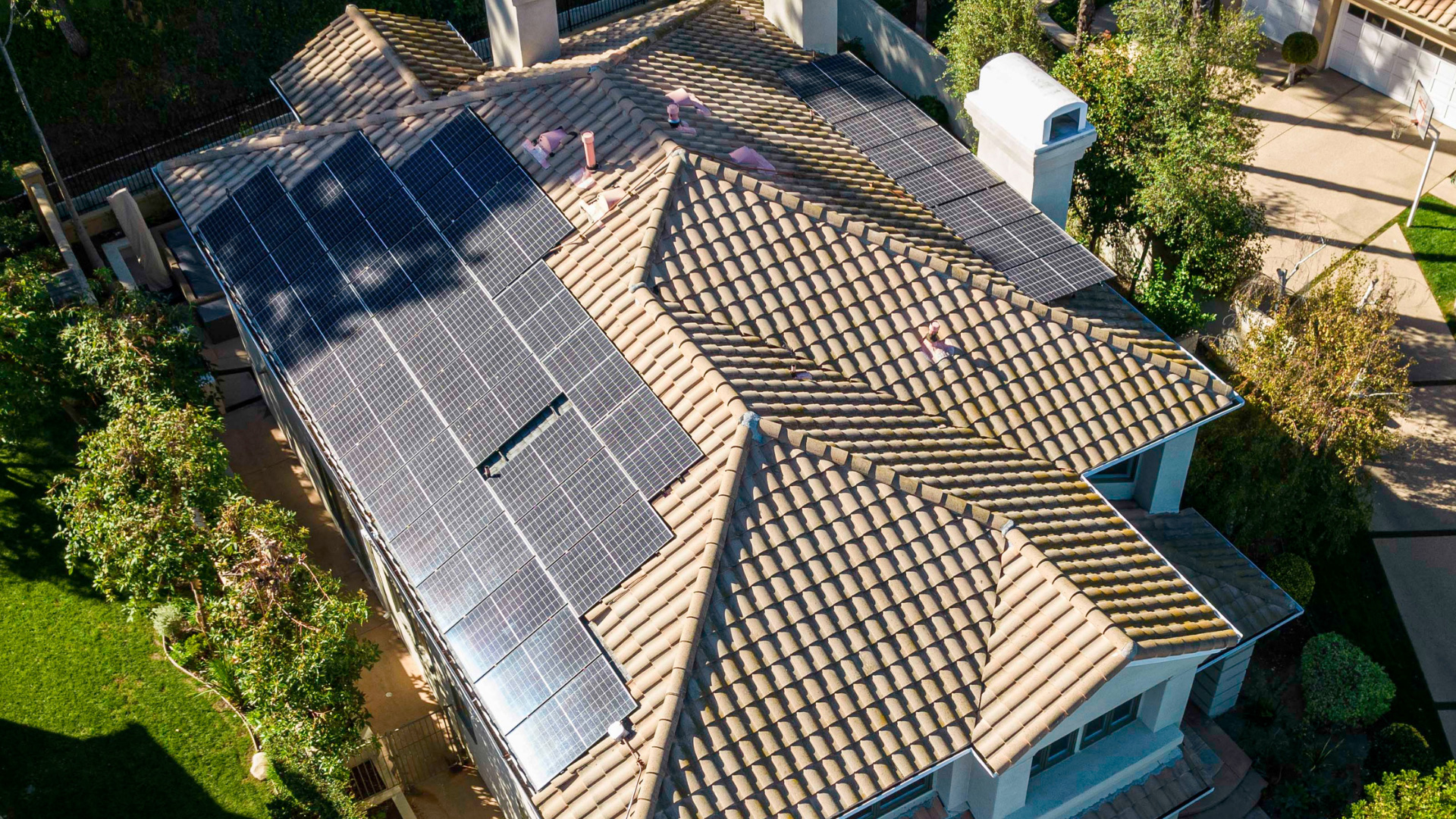If you are planning to go solar, you already know that a few soft costs are involved. One of the non-hardware costs is the installation labor. Installation labor makes up about 15% of the total cost of a solar system. There are two main ways of installing solar panels; hiring a professional installation company or taking a do-it-yourself approach.
Both approaches have advantages and disadvantages. Typically, deciding between DIY or hiring a licensed contractor depends on several factors, such as your budget, the complexity of the installation, safety considerations, and local regulations. Continue reading to learn more about the two approaches and make an informed decision if you are planning to go solar.
DIY vs. Hiring Professional Solar Installation Company
DIY solar installation means you handle all the tasks involved in going solar on your own. If you can conduct a detailed inspection of your roof, erect scaffolding and mark out the roof, attach roof anchors, and finally attach the rails of a mountain frame and solar panels, you can install your solar system. You can also get numerous online resources, guides, and videos to help you understand the installation process.
However, hiring a licensed contractor is recommendable, especially if you are new to the solar world. Licensed contractors have the experience to handle all the above DIY tasks efficiently and with the needed professionalism to avoid dangerous and expensive errors.
Pros and Cons of DIY Solar Panel Installation
Some of the main advantages of installing a solar panel on your own include:
- It saves money on labor costs as you do not have to hire professional installers
- Allows you to customize your solar panel system according to your preferences or needs
- When installing a solar panel on your own, you can learn a lot of things about how the system operates
The main cons of installing a solar panel on your own are:
- The whole process is tedious and time-consuming
- You are responsible for repairs and troubleshooting
- DIY installation has no warranty
- Improper connections and lack of safety measures when climbing on rooftops can lead to injuries and fatal accidents
- Lack of code compliance can attract fines and, in some cases, you might be required to redo the installation
Pros and Cons of Professional Solar Panel Installation
As mentioned, a DIY approach is not ideal for starters as they may not have the expertise and experience to install a solar panel system properly. In addition, licensed contractors handle more than the installation process. Some of the main benefits of hiring a licensed contractor are:
- They ensure high-quality installation
- They help apply for rebates and credits
- They know all the essential parts needed
- Experts complete the installations quickly and efficiently
- Most provide warranties for their installations
- They are well-versed with all the necessary permits and regulations
The main disadvantage of hiring a licensed contractor is that they can be expensive at the beginning. However, they can save costs in the long run by minimizing costly mistakes and ensuring seamless energy production.
Install Your Solar Panels Today With Solar Optimum
Whether to install a solar panel on your own or hire a professional installer highly depends on your knowledge, skills, time, budget, and local regulations. While DIY is cost-effective, there are numerous disadvantages associated with this approach. An installation by a certified, experienced company ensures safety, quality, and code compliance.
Solar Optimum is an elite-certified solar installer for California, Nevada, Arizona, and Florida residents. With more than 15 years of experience, we guarantee top-notch installation services. Contact us today to learn more about our services, including our unmatched 25-year warranties for solar panels, workmanship, roof, racking, and performance guarantee.






